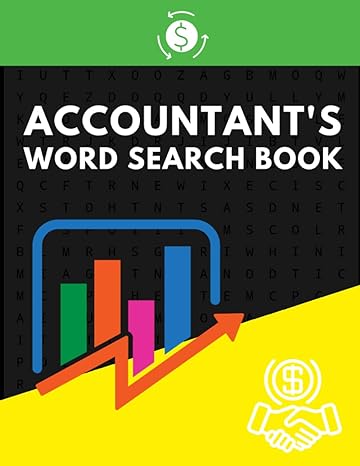Question
Kitchen Supply, Inc. (KSI), manufactures three types of flatware: institutional, standard, and silver. It applies all indirect costs according to a predetermined rate based on
Kitchen Supply, Inc. (KSI), manufactures three types of flatware: institutional, standard, and silver. It applies all indirect costs according to a predetermined rate based on direct labor-hours. A consultant recently suggested that the company switch to an activity-based costing system and prepared the following cost estimates for year 2 for the recommended cost drivers.
| Activity | Recommended Cost Driver | Estimated Cost | Estimated Cost Driver Activity | ||||
| Processing orders | Number of orders | $ | 36,750 | 175 | orders | ||
| Setting up production | Number of production runs | 180,000 | 100 | runs | |||
| Handling materials | Pounds of materials used | 260,000 | 130,000 | pounds | |||
| Machine depreciation and maintenance | Machine-hours | 286,000 | 13,000 | hours | |||
| Performing quality control | Number of inspections | 52,000 | 40 | inspections | |||
| Packing | Number of units | 122,500 | 490,000 | units | |||
| Total estimated cost | $ | 937,250 | |||||
In addition, management estimated 7,400 direct labor-hours for year 2.
Assume that the following cost driver volumes occurred in January, year 2:
| Institutional | Standard | Silver | |||||||
| Number of units produced | 62,000 | 23,000 | 11,000 | ||||||
| Direct materials costs | $ | 36,000 | $ | 27,000 | $ | 12,000 | |||
| Direct labor-hours | 460 | 470 | 560 | ||||||
| Number of orders | 12 | 9 | 7 | ||||||
| Number of production runs | 4 | 3 | 6 | ||||||
| Pounds of material | 13,000 | 5,000 | 2,900 | ||||||
| Machine-hours | 590 | 160 | 90 | ||||||
| Number of inspections | 3 | 2 | 3 | ||||||
| Units shipped | 62,000 | 23,000 | 11,000 | ||||||
Actual labor costs were $16 per hour.
Required:
a. (1) Compute a predetermined overhead rate for year 2 for each cost driver using the estimated costs and estimated cost driver units prepared by the consultant. (Round your answers to 2 decimal places.)
| Activity | Rate | |
| Processing orders | per order | |
| Setting up production | per run | |
| Handling materials | per pound | |
| Using machines | per machine hour | |
| Performing quality control | per inspection | |
| Packing | per unit |
(2) Compute a predetermined rate for year 2 using direct labor-hours as the allocation base. (Round your answer to 2 decimal places.)
| Predetermined rate per direct labor-hour |
b. Compute the production costs for each product for January using direct labor-hours as the allocation base and the predetermined rate computed in requirement a(2). (Do not round intermediate calculations.)
| Account | Institutional | Standard | Silver | Total |
| Direct Materials | $36,000 | $27,000 | $12,000 | $75000 |
| Direct Labor | ||||
| Indirect Costs | ||||
| Total Costs |
c. Compute the production costs for each product for January using the cost drivers recommended by the consultant and the predetermined rates computed in requirement a. (Note: Do not assume that total overhead applied to products in January will be the same for activity-based costing as it was for the labor-hour-based allocation.) (Do not round intermediate calculations.)
| Account | Institutional | Standard | Silver | Total |
| Direct Materials | $36,000 | $27,000 | $12,000 | $75,000 |
| Direct Labor | ||||
| Indirect Costs | ||||
| Processing orders | ||||
| Setting up production | ||||
| Handling materials | ||||
| Using machines | ||||
| Performing quality control | ||||
| Packing | ||||
| Total Cost |
Step by Step Solution
There are 3 Steps involved in it
Step: 1

Get Instant Access to Expert-Tailored Solutions
See step-by-step solutions with expert insights and AI powered tools for academic success
Step: 2

Step: 3

Ace Your Homework with AI
Get the answers you need in no time with our AI-driven, step-by-step assistance
Get Started


